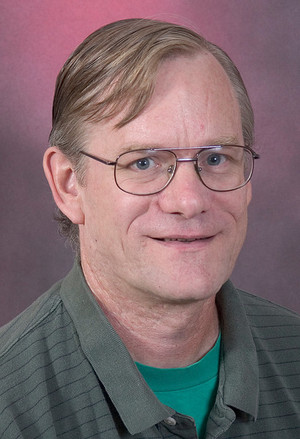Forgiveness topic of latest Graves Lecture

Brad Wilburn, Chadron State College associate professor of English and humanities, spoke about the connections between forgiveness, reconciliation and moral improvement during the latest Graves Lecture. The lecture can be viewed online on the CSC YouTube channel.
“Forgiveness. What role does it play in helping us lead good lives?” Wilburn said.
He proposed that, first, the practice of forgiveness is best seen as part of the broader concept of reconciliation and, second, that reconciliation is linked to moral improvement
Forgiveness makes sense for us because we are beings in need of improvement and we are beings capable of improvement.
Wilburn said, “We talk about normative moral concepts – what kind of people we ought to be and how we ought to act - in part, because we are concerned with more nearly approaching those standards.”
Often the person who has been harmed by the wrong-doer will feel a sense of alienation and estrangement, withdrawing from interaction if possible or if not possible, interacting in a different way. Resentment, retaliation, escalation or demonization of the wrong-doer may be other responses.
“Wrong-doing diminishes relationships. It gets in our way of being productive. Forgiveness can help us recapture the valuable aspects of our worthwhile or long-term relationships,” he said.
Joseph Butler referred to forgiveness in one of his sermons as foreswearing or distancing oneself from feelings of resentment. Others propose that even more positive feelings than those which existed before the estrangement can be accomplished through forgiveness and reconciliation.
Wilburn pointed out that forgiveness and reconciliation do not need to take place together.
Some psychologists find that some clients seeking therapy benefit from forgiving an abuser, possibly even when the abuser is deceased. In other cases, it may be best for the safety or health of the victim to forgive only and not reconcile with the person who caused the harm.
If the wrong-doer does not apologize, the victim can chose to hope that he or she will.
“Viewing others charitably can have a self-fulfilling effect. In a way supporting them is like ‘fake it until you make it’,” Wilburn said.
Forgiveness as a gift freely offered, with no strings attached.
It is an ongoing process to shape our character and keep working at a recovered relationship when the past wrong-doing is remembered from time to time.
Part of reconciliation, on the part of the wrong-doer, is commitment to improvement. Wilburn said it typically begins with a sincere apology, followed by forgiveness and reconciliation. Repentance should involve looking back as well as look forward to character improvement.
Although the major focus is on the improvement of the wrong-doer, Wilburn proposed that the moral character of the victim is also improved by offering forgiveness. This is a way for the victim to prevent becoming corrupted following the initial injury.
Reflecting on the other person’s faults, and our own, can lead to better understanding of how human error takes place, Wilburn said.
Category: Campus News, Graves Lecture Series
